
28 Years Later Review: A Legacy Sequel Bursting with Energy and Concepts
One might argue that Danny Boyle was once the embodiment of Cool Britannia in filmmaking—a director who, at 40, effectively captured the essence of the youth in their 20s, as demonstrated in Trainspotting. Between that film and 2017's T2 Trainspotting, Boyle secured an Academy Award for Best Director for a widely appealing film and directed the opening ceremony of the 2012 London Olympics, thus losing any argument against being labeled a sell-out. As the demand for intellectual property has intensified and the British Empire has further diminished since the tumultuous release of T2, calls for another sequel have arisen. Will the director compromise even more?
Equipped with a plethora of iPhones, 28 Years Later presents a clear statement from Boyle that he still has the ability to deliver. Here, his frantic energy combined with returning writer Alex Garland’s uniquely structured screenplay creates a film that keeps audiences on their toes—a high compliment for something set to hit theaters soon. Although this may not necessarily mean that the film is inherently great.
One refreshing aspect is the absence of any distinct connections to the previous series in this legacy sequel. The story begins nearly thirty years after the outbreak of the rage virus in Britain, plunging us into what appears to be a retro village society that has managed to survive on the quarantined Scottish Isles. However, the promotional material for 28 Years Later conceals that the actual protagonist is a pre-teen boy named Spike (Alfie Williams), the son of the rugged hunter Jamie (Aaron Taylor-Johnson) and the bedridden Isla (Jodie Comer), who seems to be afflicted by a degenerative brain condition. Jamie is preparing Spike to become the man of the house, while he seemingly overlooks his wife's deteriorating condition in a society devoid of doctors. Though Jamie might showcase the millennial dad persona of being a caring individual, a darker side is evident in him and the boys-club atmosphere he embodies.
Initially, stronger commentary seems to arise through the editing: the all-white society reveals its isolationist tendencies, while the film aggressively intersperses British nationalist imagery, including scenes from Laurence Olivier’s wartime epic Henry V and archival footage from World War II, which might suggest a parallel to Brexit. Nevertheless, many of Boyle and his team's stylistic choices seem disjointed, repeatedly showcasing zombie arrow kills in slow-motion panoramic shots, only for the film to lose interest and revert to scenes of spines being violently extracted from infected bodies.
This aligns with Garland’s screenplay, which shifts direction so frequently that it’s challenging to ascertain its ultimate purpose. As Spike embarks on a journey with his mother to find the exiled doctor Kelson (a remarkable Ralph Fiennes), the film leans into more risks. Supporting characters are swiftly sidelined, and the tone oscillates wildly between humor and emotional sentiment. Death can be portrayed either as a joke or a tragedy within just a few minutes.
The seeming disregard for overarching morality or cohesive thematic threads indicates that 28 Years Later, despite Boyle and Garland's impressive track record in recent years, isn't particularly worried about respectability. The film may not be entirely fulfilling—it still leaves much to be desired for an upcoming sequel entitled The Bone Temple—but one must commend the audacity of concluding with a genuinely shocking and comedic ending that is likely to lead to an F CinemaScore and minimal attendance for the next installment.
28 Years Later is set to be released in theaters on Friday, June 20.
Other articles
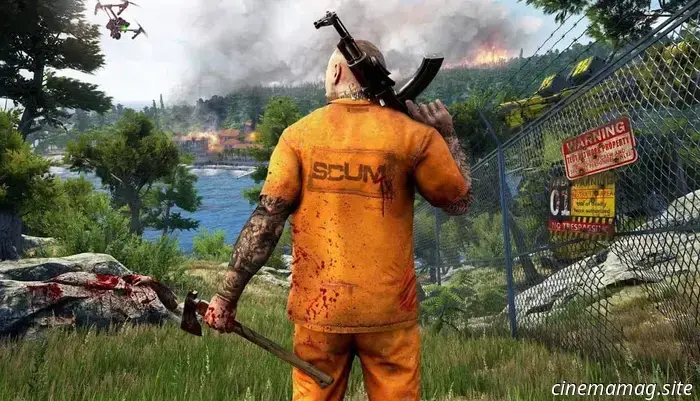 The harsh survival game Scum has transitioned out of Early Access and has released version 1.0.
Following over 250 updates, numerous adjustments, and a wide array of gameplay enhancements, the harsh PvPvE open-world survival simulation Scum has exited Early Access and is now released in version 1.0 on Steam. Endure challenging conditions as a solo Supermax Prisoner or team up with friends on a 64-player server. Check out the new trailer below…. […]
The harsh survival game Scum has transitioned out of Early Access and has released version 1.0.
Following over 250 updates, numerous adjustments, and a wide array of gameplay enhancements, the harsh PvPvE open-world survival simulation Scum has exited Early Access and is now released in version 1.0 on Steam. Endure challenging conditions as a solo Supermax Prisoner or team up with friends on a 64-player server. Check out the new trailer below…. […]
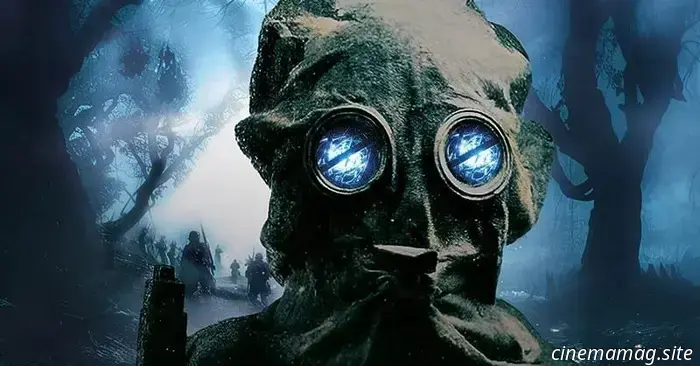 Trailer for the sci-fi mystery thriller "Site," featuring Jake McLaughlin and Theo Rossi.
Blue Fox Entertainment has unveiled a trailer and poster for Site, the forthcoming sci-fi thriller directed and written by Jason Eric Perlman. Jake McLaughlin plays Neil, a man who starts to have distressing visions of past events and lifetimes after exploring an abandoned government test facility. The cast also features Arielle Kebbel, Theo Rossi, […]
Trailer for the sci-fi mystery thriller "Site," featuring Jake McLaughlin and Theo Rossi.
Blue Fox Entertainment has unveiled a trailer and poster for Site, the forthcoming sci-fi thriller directed and written by Jason Eric Perlman. Jake McLaughlin plays Neil, a man who starts to have distressing visions of past events and lifetimes after exploring an abandoned government test facility. The cast also features Arielle Kebbel, Theo Rossi, […]
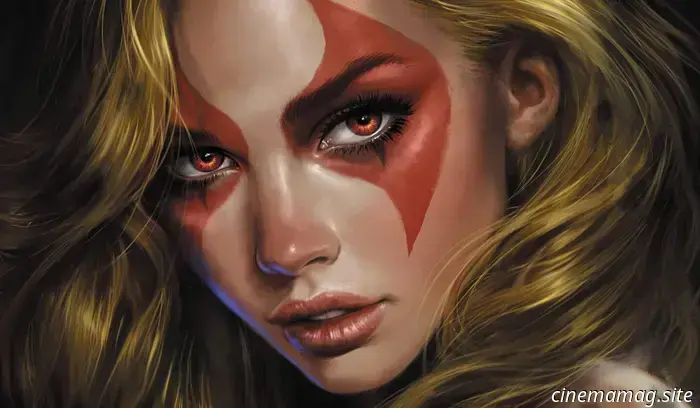 Dynamite reveals a new ThunderCats special titled Cheetara: Worldbreaker.
Dynamite Entertainment has revealed that the beloved character Cheetara will be in the spotlight again this September with the release of the new one-shot comic book ThunderCats: Cheetara – Worldbreaker. This comic marks the writing debut of Dynamite's regular ThunderCats editor, Nate Cosby, who collaborates with artist David Cousens. Worldbreaker aims to establish the foundation for the forthcoming era […]
Dynamite reveals a new ThunderCats special titled Cheetara: Worldbreaker.
Dynamite Entertainment has revealed that the beloved character Cheetara will be in the spotlight again this September with the release of the new one-shot comic book ThunderCats: Cheetara – Worldbreaker. This comic marks the writing debut of Dynamite's regular ThunderCats editor, Nate Cosby, who collaborates with artist David Cousens. Worldbreaker aims to establish the foundation for the forthcoming era […]
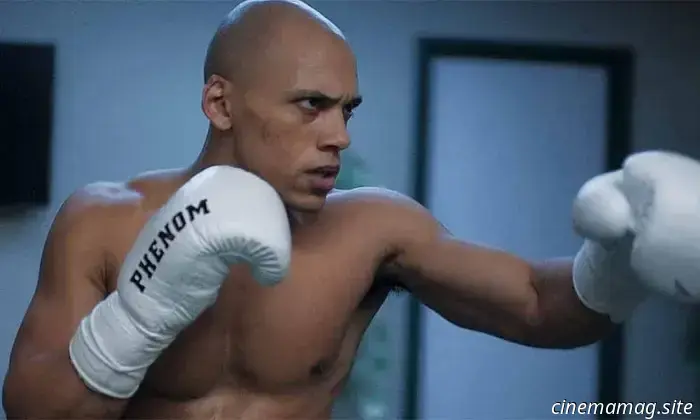 Heavyweight - Review of the Raindance Film Festival 2025
Heavyweight, 2025. Directed by Christopher M. Anthony. Featuring Jordan Bolger, Nicholas Pinnock, Jason Isaacs, Sienna Guillory, Osy Ikhile, and Blake Harrison. SYNOPSIS: A boxing trainer gets an underdog ready for a pivotal championship bout, all while their world begins to crumble under the mounting stress. This tense film evokes the sensation of pushing through to the finish in a […]
Heavyweight - Review of the Raindance Film Festival 2025
Heavyweight, 2025. Directed by Christopher M. Anthony. Featuring Jordan Bolger, Nicholas Pinnock, Jason Isaacs, Sienna Guillory, Osy Ikhile, and Blake Harrison. SYNOPSIS: A boxing trainer gets an underdog ready for a pivotal championship bout, all while their world begins to crumble under the mounting stress. This tense film evokes the sensation of pushing through to the finish in a […]
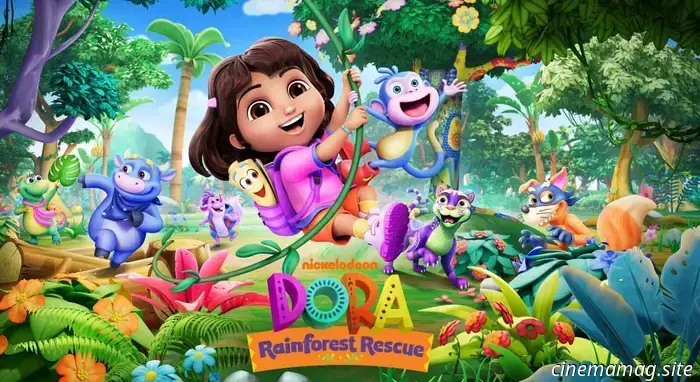 Dora: Rainforest Rescue brings thrilling adventures to PC and consoles this October.
This year marks the 25th anniversary of Dora the Explorer, and Outright Games will commemorate 25 years of this young adventurer's journeys this autumn with Dora: Rainforest Rescue. This brand-new adventure, inspired by the CG-animated DORA series, is set to launch on Nintendo Switch, PlayStation 5, PlayStation 4, Xbox Series X|S, Xbox One, and PC on 24th October. Stay tuned for the new […]
Dora: Rainforest Rescue brings thrilling adventures to PC and consoles this October.
This year marks the 25th anniversary of Dora the Explorer, and Outright Games will commemorate 25 years of this young adventurer's journeys this autumn with Dora: Rainforest Rescue. This brand-new adventure, inspired by the CG-animated DORA series, is set to launch on Nintendo Switch, PlayStation 5, PlayStation 4, Xbox Series X|S, Xbox One, and PC on 24th October. Stay tuned for the new […]
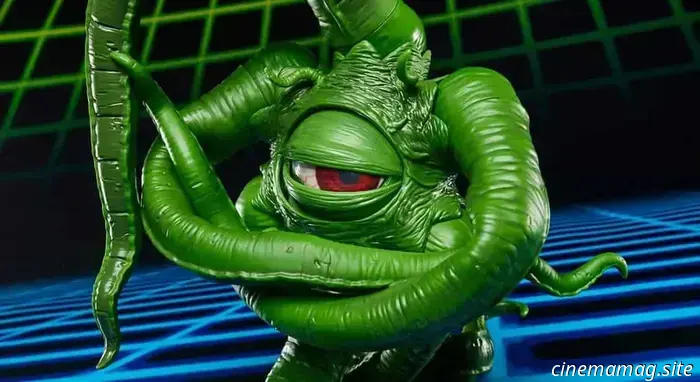 Shuma-Gorath joins Hasbro's Marvel Legends Series with the Gargantos figure from the Gamerverse.
Continuing from the Wolverine vs Silver Samurai, Psylocke vs Thanos, and Captain America vs Venom 2-packs, Hasbro has now officially opened pre-orders for its next Marvel Legends Series Gamerverse product inspired by Capcom’s classic Marvel video games. This release features the eldritch entity Shuma-Gorath, although it has been renamed Gargantos for this launch and its appearance in Doctor Strange and [...]
Shuma-Gorath joins Hasbro's Marvel Legends Series with the Gargantos figure from the Gamerverse.
Continuing from the Wolverine vs Silver Samurai, Psylocke vs Thanos, and Captain America vs Venom 2-packs, Hasbro has now officially opened pre-orders for its next Marvel Legends Series Gamerverse product inspired by Capcom’s classic Marvel video games. This release features the eldritch entity Shuma-Gorath, although it has been renamed Gargantos for this launch and its appearance in Doctor Strange and [...]
28 Years Later Review: A Legacy Sequel Bursting with Energy and Concepts
Danny Boyle can be considered the filmmaking representative of Cool Britannia: a director who, at 40, effectively captured the spirit of the youth at 20, exemplified by Trainspotting. In the years that passed between that film and 2017’s T2 Trainspotting, Boyle received an Academy Award for Best Director for a rather
